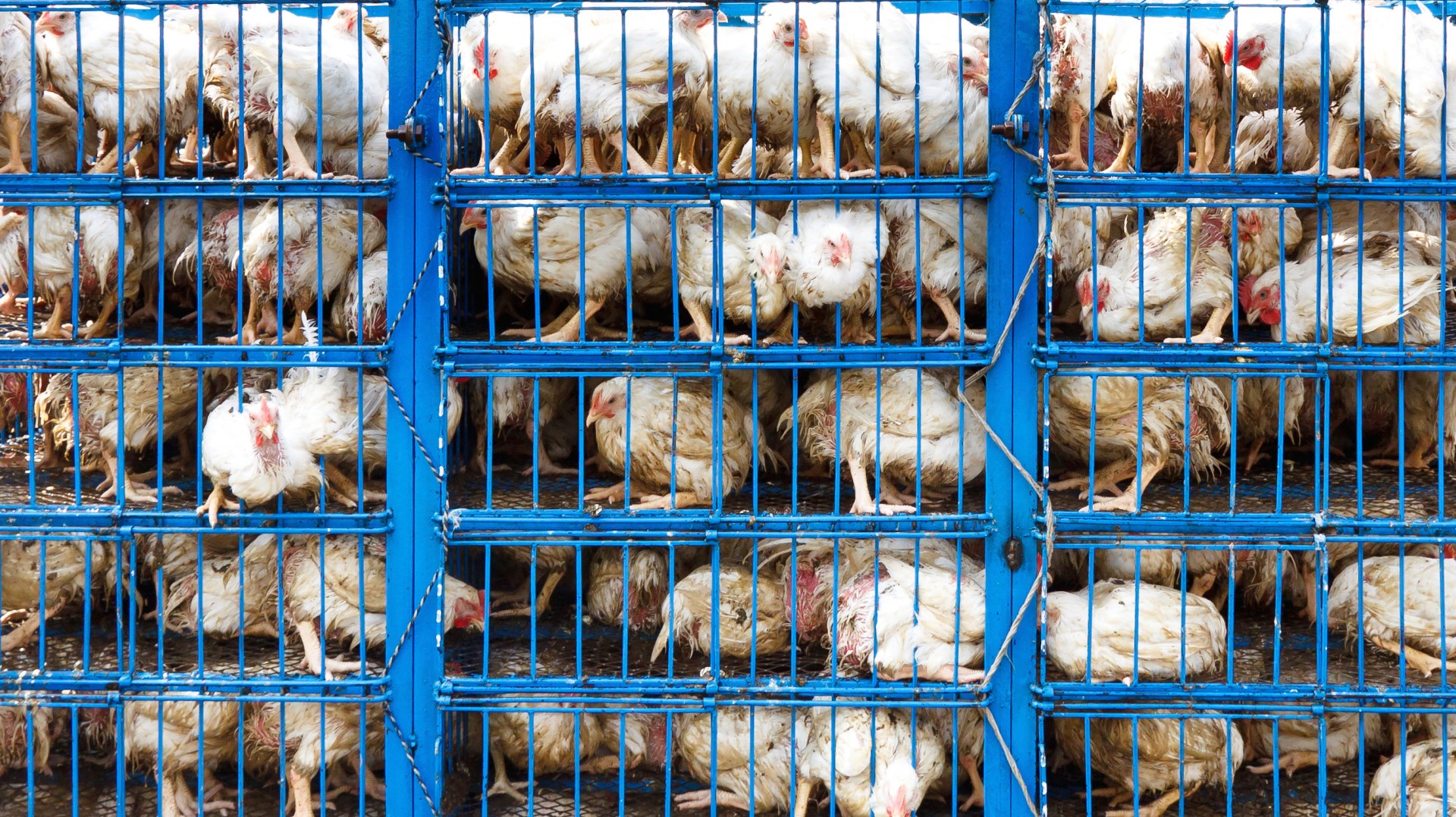Whenever somebody claims that one activity is more spiritual than another, I give due diligence to determine whether I should adjust my spiritual life to encompass the claimed benefit, or if the claim is nothing more than, "I like my secular tradition more than your secular tradition." After substantial research, I think your recent article "Would You Kill a Chicken with Your Bare Hands?" (November 2013) belongs in the latter category. I do not begrudge author Bret Mavrich any spiritual benefit from using small tools to kill a chicken in his hand. And he should not deny my spiritual benefit from using larger tools to kill many chickens one thousand miles away. We both thank God for providing chickens to eat and for farmers to grow them, whether on small farms like Lamppost Farm, or in factory farms like the kind Tyson Foods runs. Make no mistake: Christians around the world have derived substantial spiritual and financial benefit from factory farms and processed food. Those scorned links in the global food chain have freed up millions of people to do other things to create wealth in the United States and beyond.
Some people squander their share of that wealth and freedom in "riotous living." But many have invested a portion of it to pay a smaller number of the same people (also not needed to grow food) to preach the gospel in countries where the population remains preoccupied in growing and processing their own food in the manner recommended by the owners of Lamppost, and who therefore cannot afford to pay for their own pastors and missionaries. Other people freed from food preparation used their time to invent computers and to program them to publish articles, so that Christianity Today can report on Lamppost Farm and C. S. Lewis and other spiritually edifying topics. All this would not be possible if we all spent vast amounts of time farming and preparing food and manufacturing our clothing and undertaking other activities that filled the days of our great-grandparents.
TV Dinners and Time
Lamppost Farm has a website with an email address. The owners, Steve and Melanie Montgomery, were kind enough to answer my questions. I also searched online for differences between organic and factory-farming methods. The food value appears to be scientifically indistinguishable, and after you demythologize the hype, there aren't a lot of other big differences, except labor. Organic farming is labor-intensive, but hardly anybody will say how intensive. I found one farmer who admitted that his organic farm used three times as much labor as the same acreage would by conventional farming methods. Another wanted cooks everywhere to be raising and killing (and presumably plucking by hand) their own chickens. I buy TV dinners and canned soup for about $1 each, slightly more now due to inflation. I heat them in five minutes in a microwave, during which time I can do other things. I can prepare a comparable meal from fresh ingredients in an hour or two of total attention, assuming I do not restrict my purchases to local produce (which there isn't any here this time of year). If I search and buy local when it is available and preserve it for the winter, it doubles or triples the time I would spend on feeding myself from California and Arizona produce. That means I'd spend essentially all day just preparing food. As a computer programmer, I can earn 500 times the cost of that TV dinner or can of soup in the time it takes me to prepare food from local, fresh ingredients. That doesn't seem like a good investment of the "talent" God entrusted to me.
If I eat TV dinners and cheap soup and spend my time programming Bible translation software (which I do), then I can work a long time on the money I earned programming computers for pay 20 years ago, when I ate better but still spent my time more productively than growing and preparing food. I tried growing my own garden, but gave it up when it consumed a couple hours a day picking worms off tomatoes I can otherwise buy all year around for $1/week. It's not a good use of my time. Different people will of course have different multipliers. If God had made me a plumber or a truck driver or a school teacher, I might earn a little less per hour than I do as a programmer, but still far more than the cost of buying factory food instead of making it myself in the same time I would otherwise be working. Multiply that times the entire country, and you have a huge amount of labor to be invested in all kinds of activities, which creates wealth exponentially, with enough left over for us to be God's benefactors to the world, in food and technology as well as discipleship. We can even afford to let some people grow organic food (at a high price) and occasionally prepare things from scratch, if that makes them feel good about thanking God for it. I have also spent too much time writing this letter. I need to get back to the work God gave me to do—and to thanking him for produce farms in California and truckers who drive it 2,000 miles to the local grocery stores, and for factory farms in Iowa and Arkansas that package up processed foods that I can eat so inexpensively, and for the many people with the time and money who study God's Word and preach the gospel here and elsewhere.
Tom Pittman has a PhD in Information Science from the University of California at Santa Cruz.









